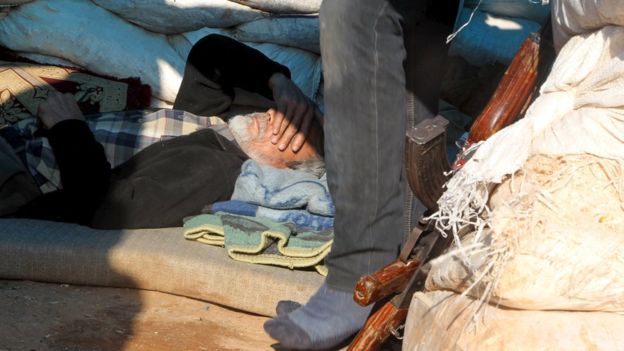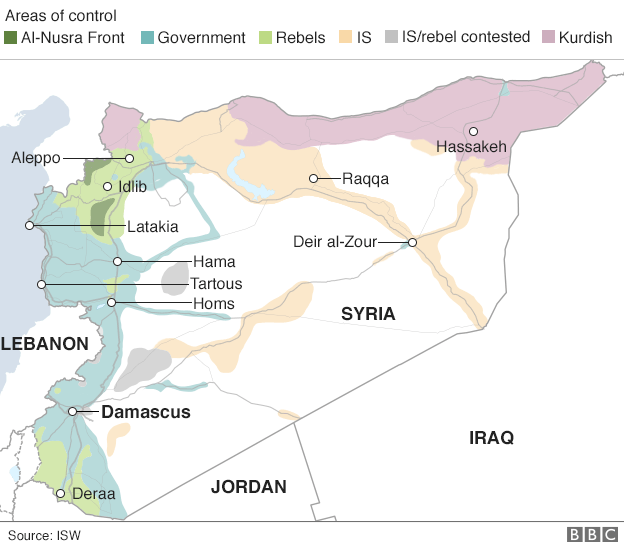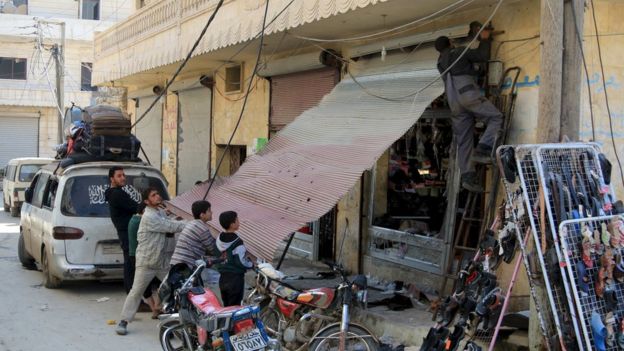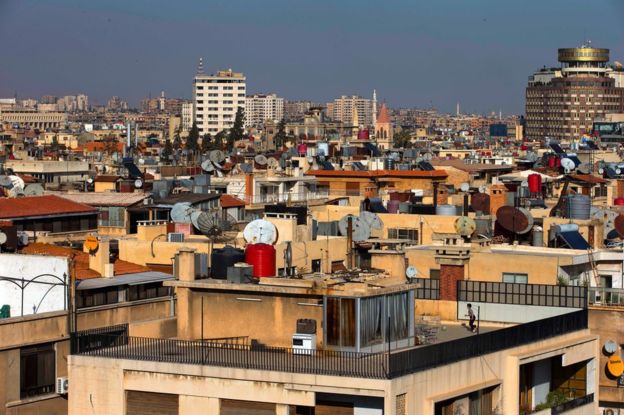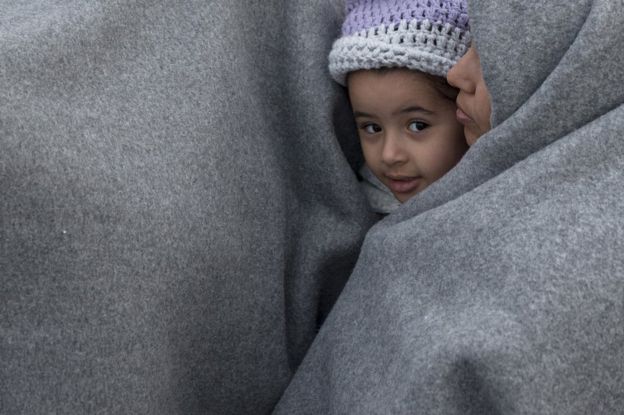Syrian war: UN to expand aid amid partial truce
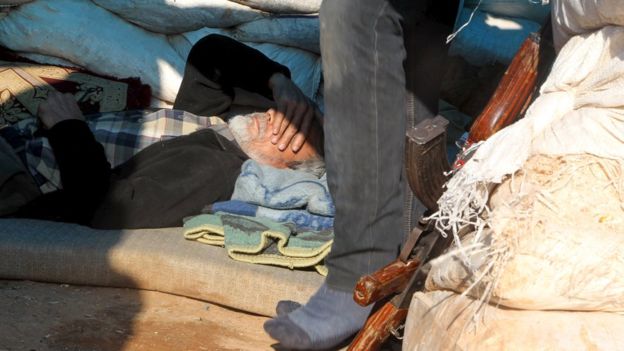
The UN says it plans to deliver aid to about 150,000 Syrians in besieged areas over the next five days amid a partial truce in the country's civil war.
It said it was ready to help an estimated 1.7 million people in hard-to-reach areas by the end of March.
A cessation of hostilities began on Saturday and there have been complaints of breaches from both sides.
But it otherwise appears to be intact with a key Syrian opposition group saying the situation is much better.
Western powers have accused Russia of attacking moderate rebels fighting Syrian President Bashar al-Assad; Moscow says it only targets UN-designated terror groups.
This is now a crucial window of opportunity for the UN to get food and aid to the besieged. The truce does, in general, remain intact despite both the Western-backed opposition and regime sides complaining of dozens of violations over the weekend, including air strikes around Aleppo.
But it is unclear whether the target was the al-Qaeda-linked Nusra front, which would not constitute a ceasefire breach since it and so-called Islamic State are not included in the deal.
A rebel spokesman talked of violations "here and there" but a situation much better than before. Moscow also complained of incidents but said on the whole, the ceasefire was being implemented.
That it has largely held for the weekend has defied expectations but there is still a lot of scepticism that it can continue for the full two weeks.
The UN's humanitarian co-ordinator in Syria, Yacoub el-Hillo, called the truce "the best opportunity that the Syrian people have had over the last five years for lasting peace and stability".
The organisation plans to use the lull to deliver food, water and medicine to towns like Madaya, where residents have reportedly been starving to death.
It says it needs the approval of Syria's warring parties before it can further expand its deliveries.
Efforts to deliver aid to Islamic State-besieged Deir al-Zour by air last week failed when several pallets were damaged, disappeared or landed in no-man's land.
Almost 500,000 people are living under siege in Syria, the UN estimates.
The cessation of hostilities was agreed as part of a plan by the US and Russia, who have backed opposing sides in Syria's civil war.
It does not apply to the fight against so-called Islamic State (IS) or the Nusra Front, which is linked to al-Qaeda.
The main Syrian opposition grouping has complained of several violations of the ceasefire by the government side, which is supported by Russia.
The High Negotiations Committee (HNC) said it would be sending a formal letter of complaint about the breaches to the UN and other world powers.
However, it added that, despite violations "here and there", it was "positive to see people getting relief… to be safe, and free from fear".
Russia also complained of several breaches but said "on the whole, the ceasefire regime in Syria" was being implemented.
UK-based monitoring group the Syrian Observatory for Human Rights said several air strikes had pounded northern Aleppo province but it did not say who was responsible.
It is hoped the cessation will pave the way for a formal ceasefire.
UN special envoy for Syria Staffan de Mistura has said peace talks will resume on 7 March if the truce "largely holds".
Syria's civil war
Why is there a war in Syria?
Anti-government protests developed into a civil war that, four years on, has ground to a stalemate, with the Assad government, Islamic State, an array of Syrian rebels and Kurdish fighters all holding territory.
What's the human cost?
More than 250,000 Syrians have been killed and a million injured. Some 11 million others have been forced from their homes, of whom four million have fled abroad — including growing numbers who are making the dangerous journey to Europe.
How has the world reacted?
Iran, Russia and Lebanon's Hezbollah movement are supporting the Alawite-led Assad government, while Turkey, Saudi Arabia and Qatar back the more moderate Sunni-dominated opposition, along with the US, UK and France. Hezbollah and Iran have pro-Assad forces on the ground, while Russia and a Western-led coalition are carrying out air strikes.
Политика конфиденциальности | Правила пользования сайтом
